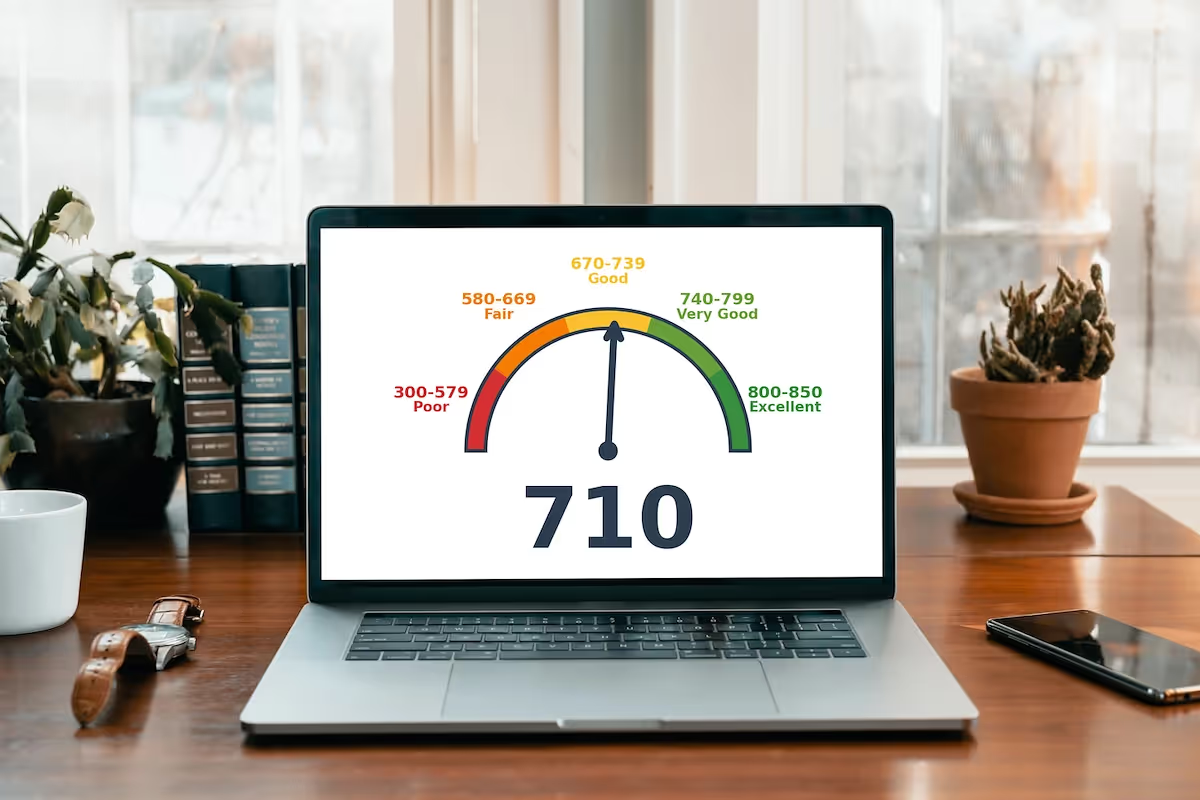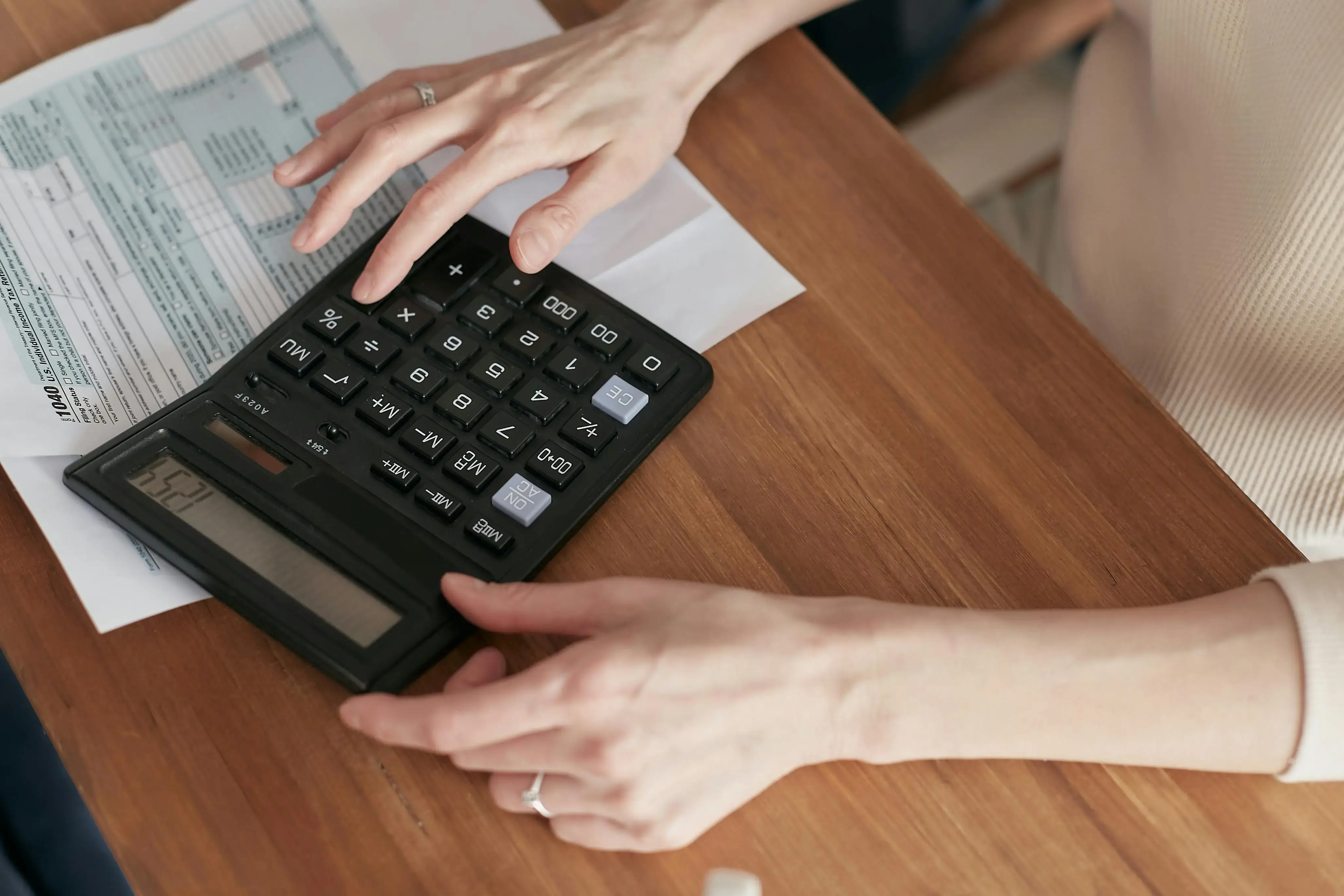
Kudos has partnered with CardRatings and Red Ventures for our coverage of credit card products. Kudos, CardRatings, and Red Ventures may receive a commission from card issuers. Kudos may receive commission from card issuers. Some of the card offers that appear on Kudos are from advertisers and may impact how and where card products appear on the site. Kudos tries to include as many card companies and offers as we are aware of, including offers from issuers that don't pay us, but we may not cover all card companies or all available card offers. You don't have to use our links, but we're grateful when you do!
710 Credit score: What You Need to Know in 2025
July 1, 2025


TL;DR
A 710 credit score is a strong financial footing that will generally qualify you for a wide variety of loans and credit products at competitive rates. This score falls squarely into the "Good" category according to the FICO scoring model, putting you in an excellent position to achieve your financial objectives.
What Does a 710 Credit Score Mean?
A 710 credit score places you firmly in the "good" range for most lenders, including the widely used FICO model. This is a commendable position that often unlocks favorable financial opportunities. Lenders generally view a score like this as a sign of a responsible borrower, meaning you'll likely qualify for a variety of loans and credit cards with competitive interest rates. It's a score that can significantly ease your path when navigating major financial decisions.
While 710 is a solid score, it also serves as an excellent foundation for future growth. You are well-positioned to build upon this standing and potentially move into the "very good" or "excellent" credit tiers. Continuing on a positive financial track can open doors to even better lending terms and premium financial products down the road, enhancing your overall financial flexibility and power.
Who Has a 710 Credit Score?
While age is not a direct factor in calculating your credit score, there is a strong correlation between the two. Scores tend to improve as people get older and build a longer financial history. According to average credit scores by generation from 2023, the breakdown is as follows:
- Generation Z (ages 18-26): 680
- Millennials (ages 27-42): 690
- Generation X (ages 43-58): 709
- Baby Boomers (ages 59-77): 745
- Silent Generation (ages 78+): 760
Credit Cards With a 710 Credit Score
A 710 credit score places you firmly in the "good" credit category, significantly broadening your credit card options. While the most exclusive, top-tier cards might still require a higher score, you'll likely qualify for a wide range of rewards cards with competitive interest rates and attractive perks. This score signals to lenders that you are a responsible borrower, increasing your chances of approval for cards that offer valuable benefits like cash back, travel points, and introductory 0% APR periods.
Kudos offers personalized recommendation engines like the Explore Tool and the AI-powered Dream Wallet to help you find the perfect credit card match from a database of nearly 3,000 cards. These tools consider your unique spending habits and financial goals, providing insights into how a new card might impact your credit and whether its benefits justify any annual fees.
Auto Loans and a 710 Credit Score
A 710 credit score places you in the prime borrower category, which is a strong position for securing an auto loan. This generally qualifies you for competitive interest rates, though they won't be as low as those offered to super-prime borrowers.
According to a 2025 rate analysis, average interest rates for new and used vehicles break down by credit score as follows:
- Super-prime (781-850): 5.25% for new cars and 7.13% for used cars
- Prime (661-780): 6.87% for new cars and 9.36% for used cars
- Non-prime (601-660): 9.83% for new cars and 13.92% for used cars
- Subprime (501-600): 13.18% for new cars and 18.86% for used cars
- Deep subprime (300-500): 15.77% for new cars and 21.55% for used cars
Mortgages at a 710 Credit Score
With a 710 credit score, you are in a strong position to buy a home. This score is considered 'good' and generally meets the minimum credit requirements for all major loan types, including conventional, jumbo, FHA, VA, and USDA loans. Lenders view you as a less risky borrower, which not only increases your chances of approval but also gives you access to a wider range of mortgage products than applicants with scores in the 600s.
Your 710 score will also positively impact your loan terms. While you may not secure the absolute lowest interest rates reserved for top-tier credit (760+), you will qualify for significantly better rates than borrowers with lower scores. This can also lead to lower Private Mortgage Insurance (PMI) premiums on conventional loans, saving you money each month and improving your overall financial picture during homeownership.
What's in a Credit Score?
Understanding your credit score can feel like trying to solve a complex puzzle, as it's a blend of several key financial habits. The most common factors that determine your score include:
- Your payment history tracks whether you have paid past credit accounts on time.
- Credit utilization is the percentage of your available credit that you are currently using.
- The length of your credit history considers the age of your oldest account and the average age of all your accounts.
- Credit mix refers to the variety of credit products you have, such as credit cards, retail accounts, and loans.
- New credit inquiries and recently opened accounts can also temporarily impact your score.
How to Improve Your 710 Credit Score
Your credit score plays a crucial role in your financial life, but it isn't set in stone; there are always proven methods to improve your creditworthiness. With a 710 score, you're already in a good position, and a few strategic moves can elevate you into an even better tier.
- Monitor your credit reports. Regularly checking your reports helps you spot and dispute inaccuracies that could be dragging your score down. Catching errors is one of the fastest ways to see a score increase, potentially pushing you from the "good" to "very good" credit tier.
- Reduce your credit utilization ratio. This ratio is the second most important factor in your score, so paying down balances is a powerful move. For a 710 score, keeping your utilization well below 30% signals to lenders that you manage debt responsibly, which can unlock better loan terms.
- Diversify your credit mix. Lenders like to see that you can handle different types of credit, such as both revolving credit and installment loans. Adding a different type of account can strengthen your credit profile, especially if your history is limited to one kind of debt.
- Limit new hard inquiries. While you're looking to leverage your good credit, applying for too many new accounts in a short period can cause a temporary dip in your score. Be strategic about your applications to protect the score you've already built.
Using a financial companion like Kudos can help you manage your cards and spending, which supports your efforts to improve your credit.
Unlock your extra benefits when you become a Kudos member

Turn your online shopping into even more rewards

Join over 400,000 members simplifying their finances

Editorial Disclosure: Opinions expressed here are those of Kudos alone, not those of any bank, credit card issuer, hotel, airline, or other entity. This content has not been reviewed, approved or otherwise endorsed by any of the entities included within the post.



































.webp)



.webp)



.webp)

